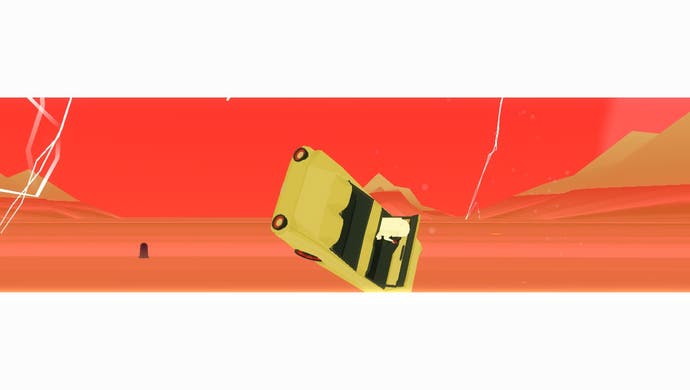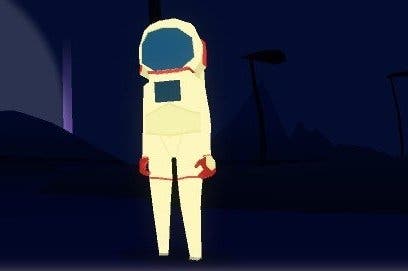The Martian comicals: Exploring alien worlds in an old roadster
Naut's landing.
If you awoke to the sound of crunching metal early this morning, it was probably me leaving the house. That's if you live on Mars, anyway.
And I certainly do. I have a lovely clapboard gaff with a generous porch. I have a companion who stands, forever, in the doorway wearing a spacesuit. I have a sleek roadster with cream-coloured fins and no suspension. The roadster's what you heard doing all the crunching, actually. In my eagerness to get started, I often drive it into the walls of the car port a few times before tooling off down the road.
There is a certain expectation about the way we will colonise space. We will colonise it seriously and with measured skill, and when we reach the stars, we will have earned that right by virtue of how competent, how appropriate we are.
The facts do not always tally, of course. We send un-manned rockets skidding off the launch pad at amusing angles. We crash probes into planets at full-speed due to confusions regarding metric and imperial. And now there's me and my 1950s dream machine: there's Naut, which suggests that the most interesting thing we might be taking into space is our strange, whimsical sense of over-confidence.
Naut is beautiful to look at, but it's also beautiful to listen to. When you first load it up and step out of the house, you're greeted with this cascading Onedin Line-style music, a piano tumbling over itself in mindless Romantic optimism. Speaking of optimism, just look at that house again: transported from 1950s suburbia and plonked on the lobster-coloured Martian landscape without a second thought. There could be something sinister about it, something of the stark juxtaposition you get from pictures of those fake streets and playgrounds they used to build at nuclear test sites. In reality, though, once you start to wander around, once your breezy, long-legged astronaut starts to go about his day, you realise there's nothing sinister going on in the slightest. We're oblivious. That's us! Why shouldn't an earthly house work on the surface of a radically different planet?

And that car? It drives on its side. You can drive it upside down, too, sending out cheery puffs of dust and smoke behind it as it races towards a jagged and foreboding horizon. Every now and then lightning erupts and the rains kick in. The sky shifts from pastel dawn to oppressive, inky dusk. The lifeforms you'll encounter tend to be pretty friendly, but the planet itself seems ambivalent about the presence of a human.
Naut may not take itself very seriously, but it absolutely nails this: the sense of a large world that will never be meaningfully tamed. It puts us in our place a little, but it also shows us how the universe might see us: Keystone Kops, essentially, rattling around with our brightly-coloured toys, feeling terribly positive about everything we come across.
I've heard Naut, which is available for Windows and Mac and Linux for whatever you might want to pay for it, described as an exploration game. I don't think it is really. There's certainly lots of stuff to explore here - much more than I immediately suspected, too - but that's ultimately less interesting than your own bizarre presence in the first place. For me, Naut does much better work as the inverse of an exploration game. It shows us ourselves, and how we might look when viewed from the perspective of an alien world.

